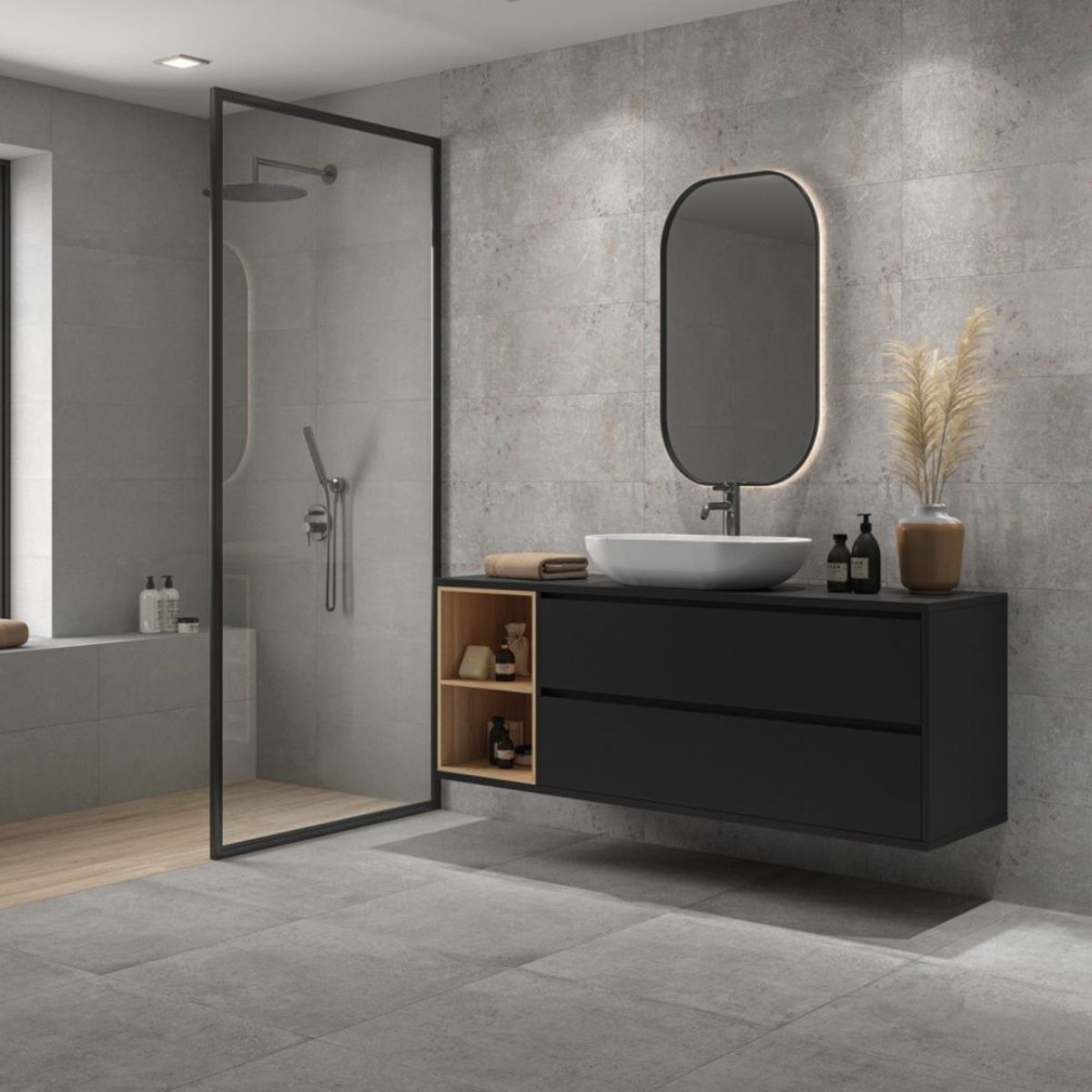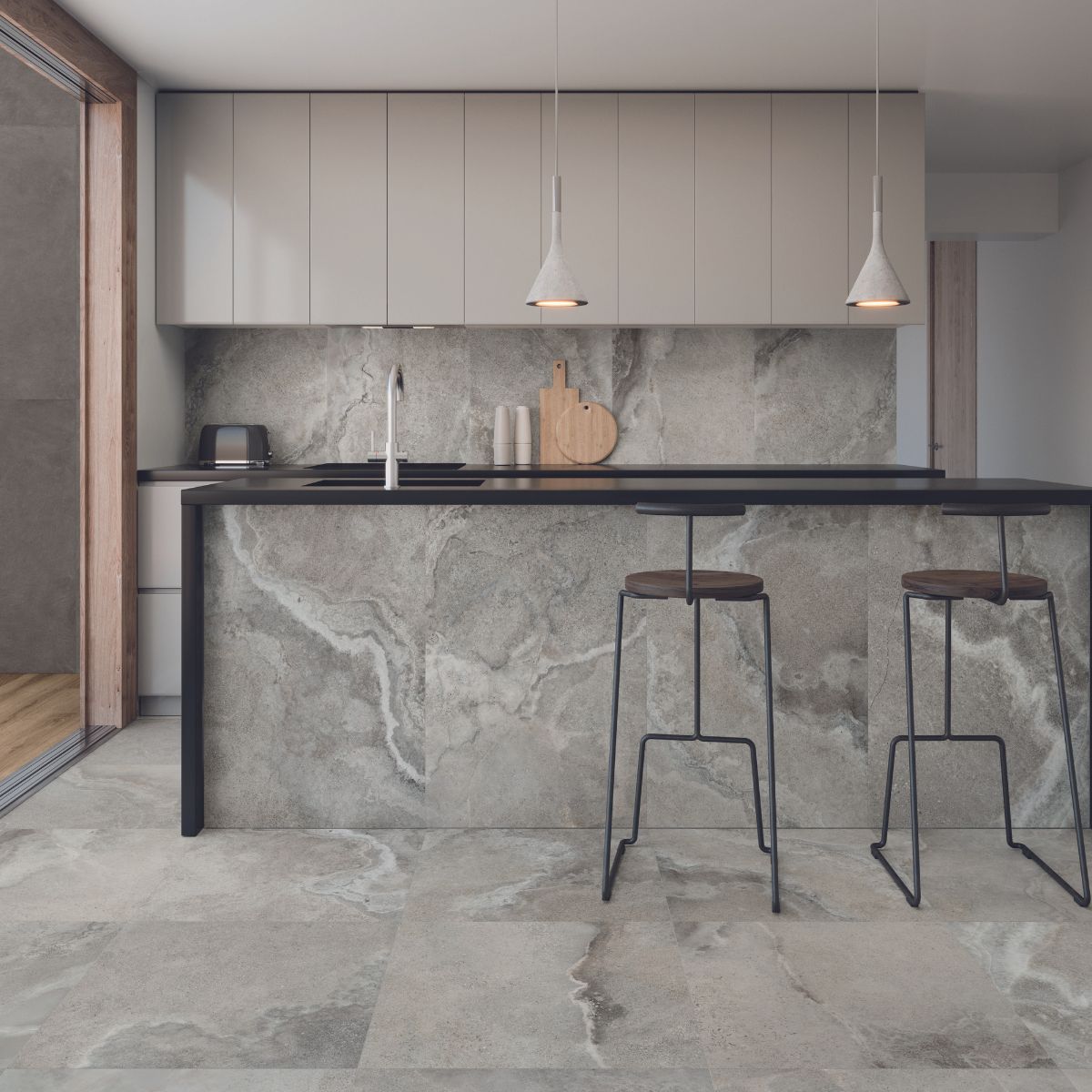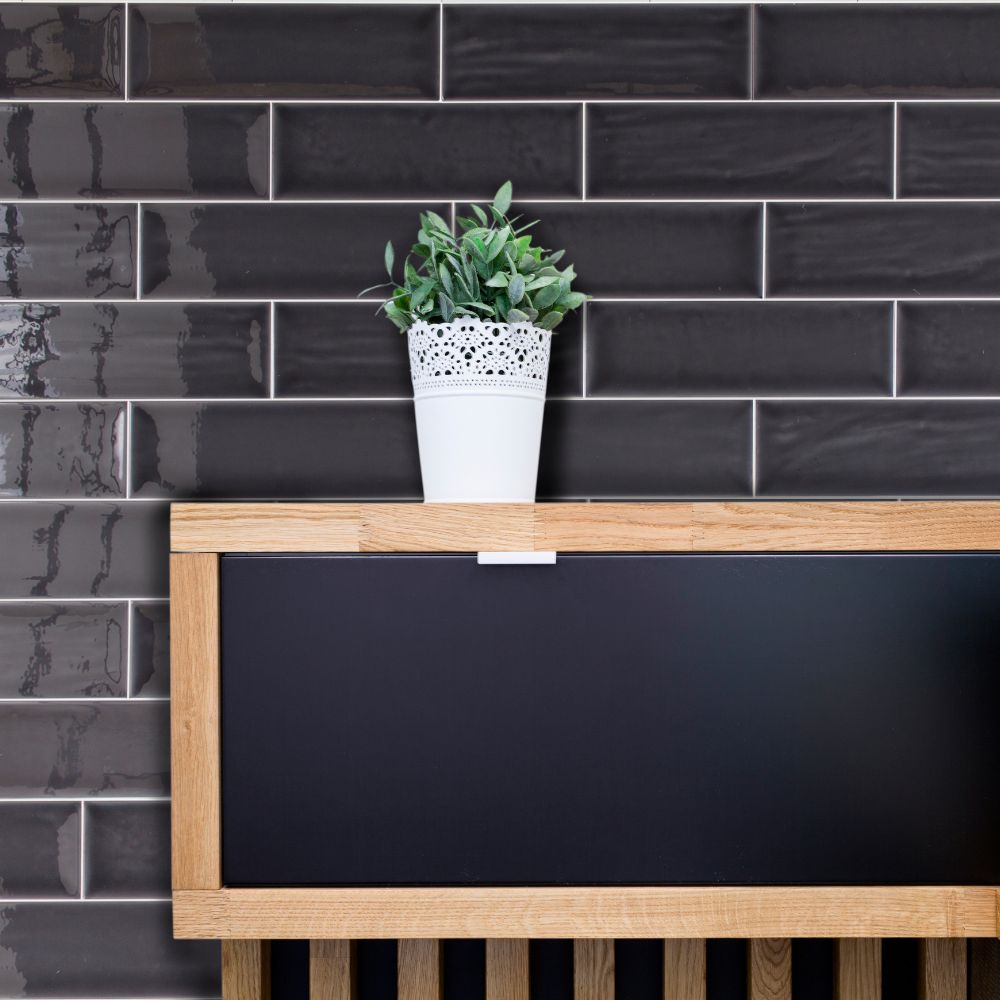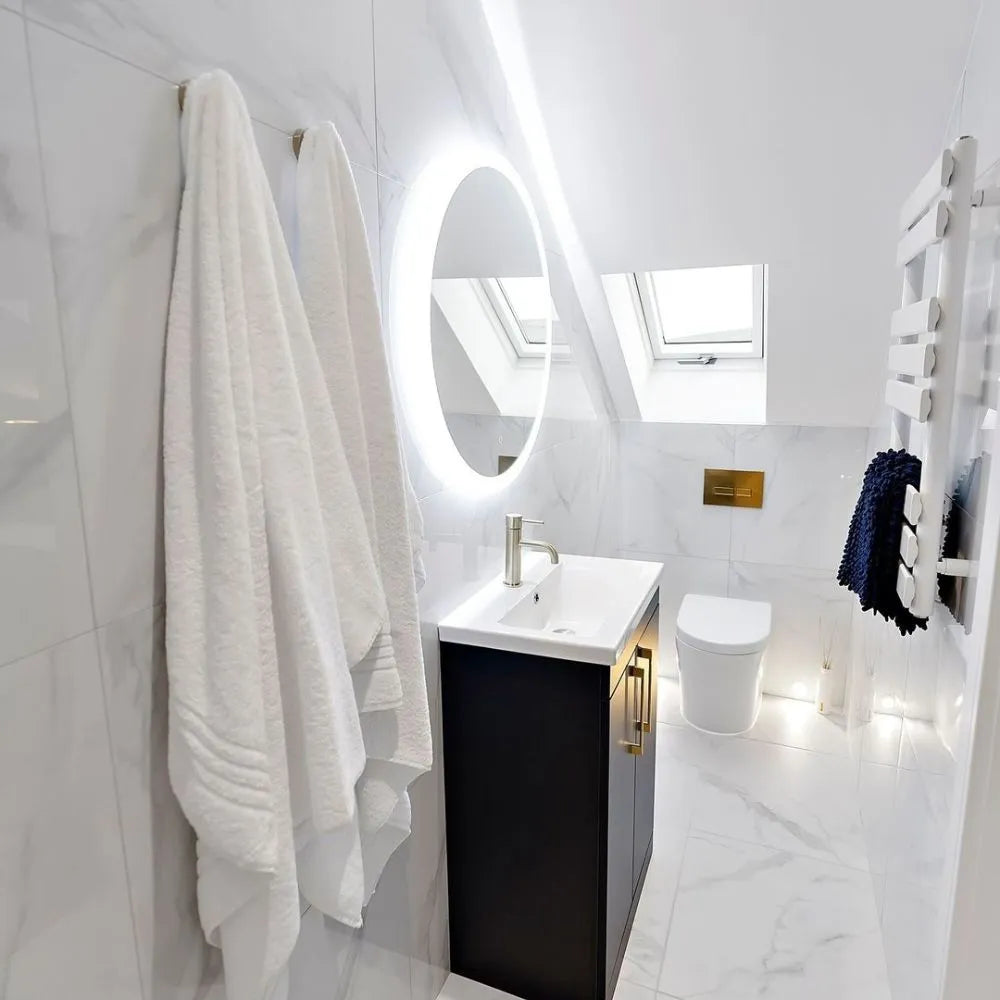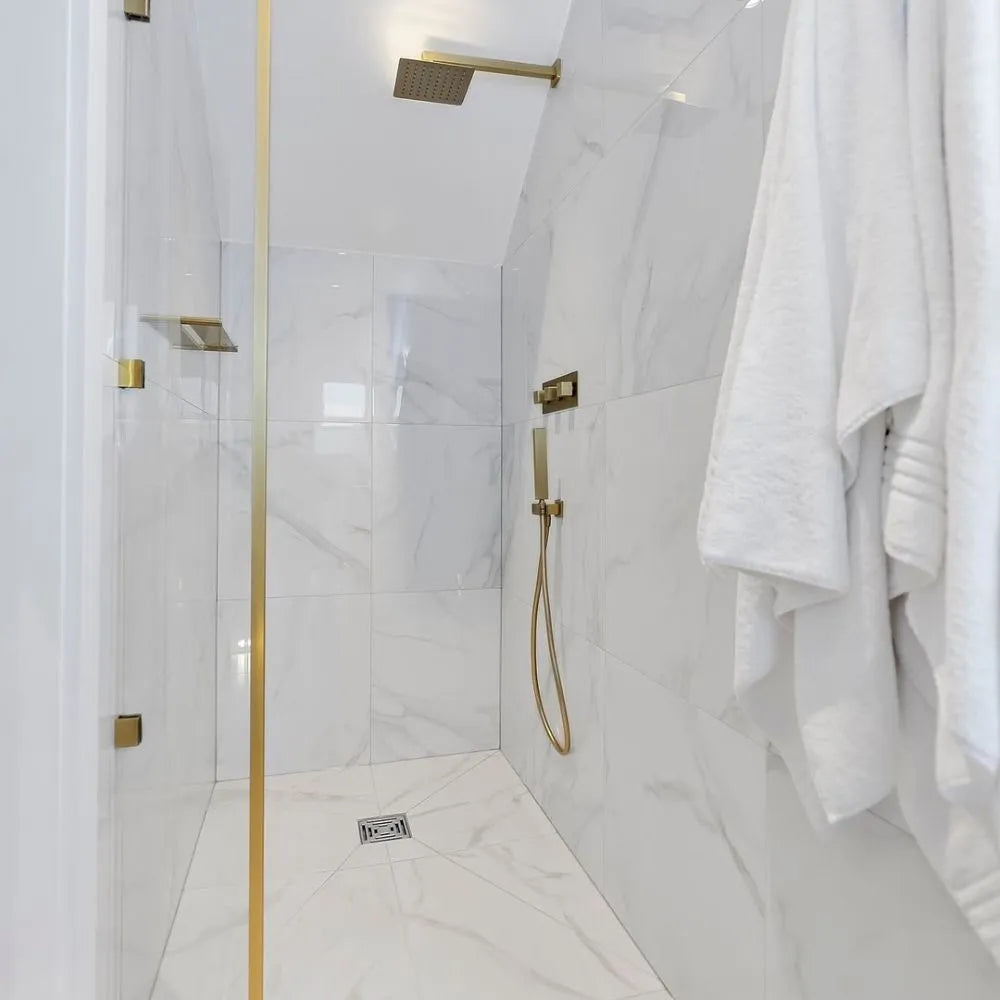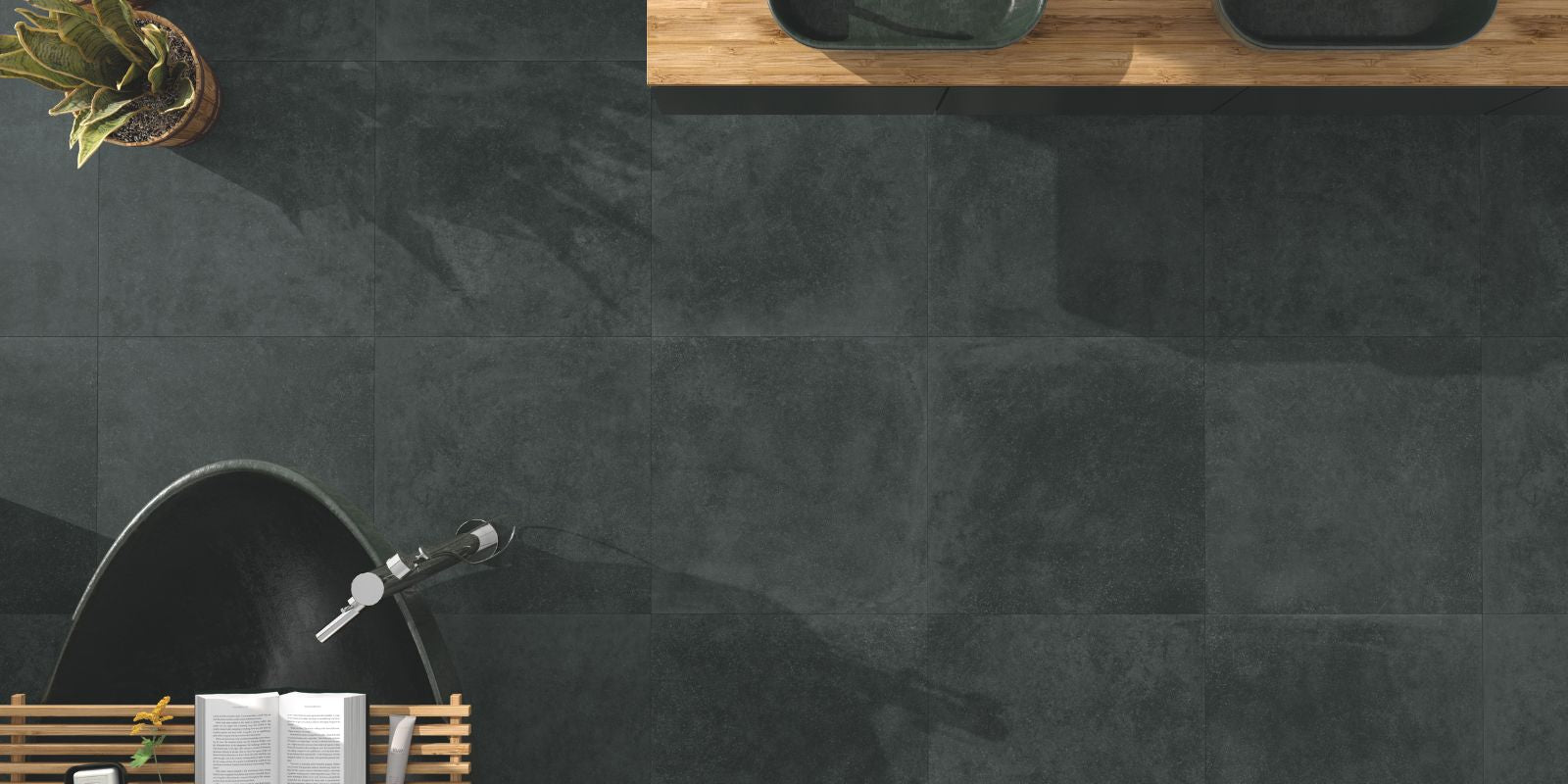
How Long Does Bathroom Renovation Take? Here's What to Expect
Wondering how long does bathroom renovation take? This article will answer the common question about how long a bathroom renovation takes. Typically, it ranges from three weeks to over ten weeks. Most projects average around six weeks. The exact time depends on the bathroom’s size and the complexity of the design. This article will walk you through the stages and factors that can affect your renovation timeline.
Key Takeaways
- Bathroom renovations typically take around six weeks, but this can vary based on size and complexity.
- Key factors influencing renovation time include bathroom size, existing conditions, design complexity, and material availability.
- Effective communication with contractors and thorough planning can help minimize delays during the renovation process.
Typical Timeline for a New Bathroom Installation
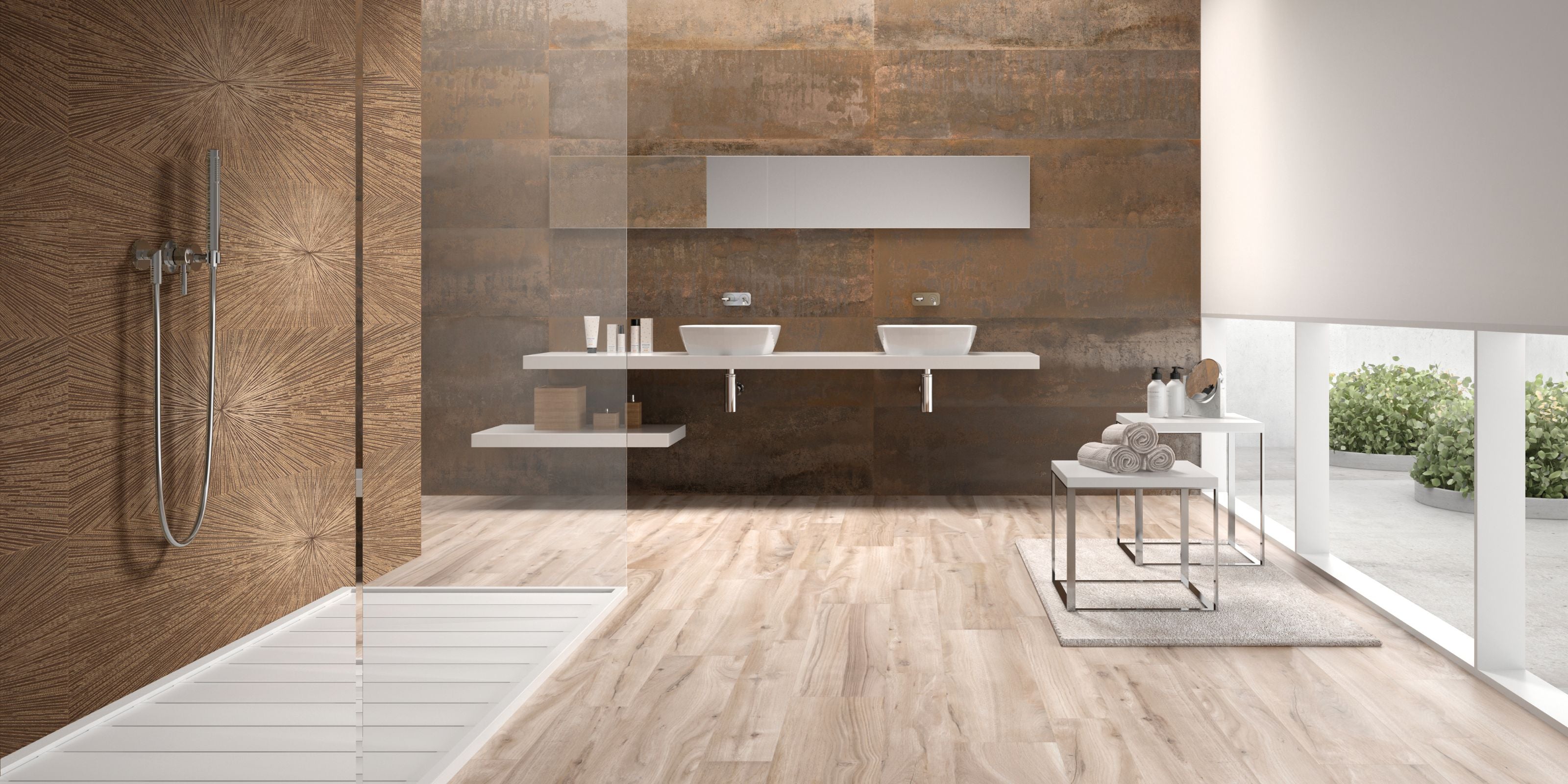
The duration of a bathroom renovation can vary significantly based on the specifics of the bathroom project, with the course of the project often depending on planning, installation, and finishing touches. The course of a bathroom project can range from three weeks to over ten weeks. On average, a bathroom renovation typically spans around six weeks, but this can fluctuate depending on several factors such as the size of the bathroom and the complexity of the design. A detailed timeline for each stage helps manage expectations and ensures the project stays on track.
Larger bathrooms generally require more time due to the increased surface area that needs to be tiled and the additional fixtures that need to be installed. More workers can expedite the project, but clear communication ensures everyone is aligned. Installing a new bathroom typically takes 1 to 2 weeks, but this only covers the installation phase, and the overall timeline is often measured in weeks.
A bathroom refurbishment involves removing old fixtures, managing structural and plumbing changes, and completing a full renovation. Typical timeframes for a bathroom refurbishment can range from a few days to several weeks, depending on the scope of work.
Delays can occur at various stages, and waiting for materials or trades can extend the timeline.
To give you a clearer picture, let’s break down the typical stages of a bathroom renovation and the time each stage usually takes. For example, if a key material is delayed in delivery, the entire project may be pushed back by a week or more, impacting the overall schedule.
Demolition and Removal of the Old Bathroom
The renovation begins with the demolition and removal phase. This involves removing old bathroom fixtures, which typically takes a few hours to a full day. The duration can vary based on the existing materials and the condition of the bathroom.
Discovering asbestos or having to deal with stubborn materials can extend this phase.
Rough-In Work for Plumbing and Electrical
Next, the rough-in work for plumbing and electrical systems is crucial. Plumbers play a key role in this stage, ensuring all water supply and drainage points are properly installed. This stage generally takes about 3 to 4 days, especially for builders handling multiple projects. It sets the stage for subsequent finishing work, ensuring that all necessary plumbing and electrical points are in place before moving forward.
Wall and Floor Preparation
Proper wall tiles and floor preparation is crucial for a successful renovation. At this stage, ceiling repairs or plastering may also be required to achieve a smooth finish. This phase includes tiling and painting and installing new windows, doors, and wall niches to ensure a complete and proper finish.
The duration for tile preparation heavily depends on the size and type of tiles selected, as larger tiles often require more precise wall adjustments.
Installing Fixtures and Fittings
Installing new fixtures and fittings is a significant step in the bathroom renovation process. This includes installing:
- Sinks
- Toilets
- Baths
- Basin
- Electrical items
- Electrical switches
Installing a new bath is a critical step and often requires careful scheduling within the overall job to ensure minimal disruption and efficient progress.
The installation duration can vary based on complexity, such as the need for new plumbing lines or extensive tile work. Typically, installing fixtures like sinks, toilets, and a new bath takes a few hours to a full day. However, for bathrooms that have not been adequately prepared, this installation process can take days depending on how unfit the condition of the bathroom is. Each job, such as fitting a new bath or connecting plumbing, must be completed efficiently to keep the project on track.
Finishing Touches
The final steps in a bathroom renovation involve adding the finishing touches. If you need advice or assistance with these final details, you can contact Tile Outlet’s friendly team. This involves adding accessories like:
- toilet paper holders
- robe hooks
- hand towel rails
- shower screens
- mirrors
These steps generally take a few hours to a full day and are crucial for completing the action of the bathroom suite and ensuring everything is connected and functioning properly. The process must be completed properly.
Factors Influencing Renovation Time
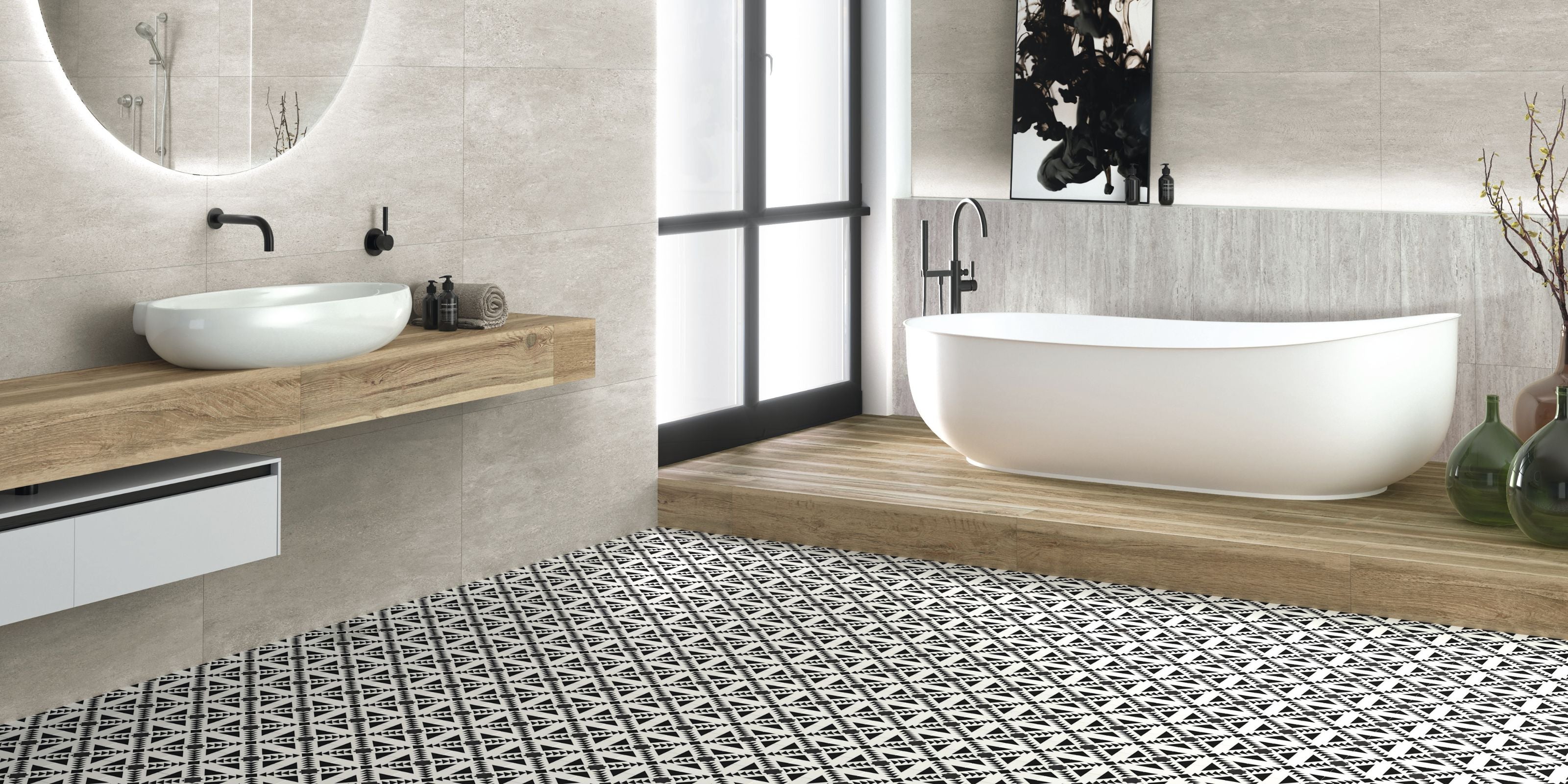
Several factors can influence the duration of a bathroom renovation. Recognizing these factors helps in planning more effectively and setting realistic expectations. Larger bathrooms with complex installations take more time due to additional plumbing and tile work. Design complexity also varies, impacting the renovation duration.
Customers may still be able to use parts of their bathroom during certain stages of the renovation, depending on the scope of work and logistics involved.
Material access delays can significantly extend the renovation schedule. The number of workers and the condition of walls also affect the renovation duration. A detailed plan with timelines, budgets, and material lists enhances efficiency and mitigates potential delays.
Here are some specific factors that influence renovation time in more detail.
Size of the Bathroom
Bathroom size greatly impacts renovation time. Larger bathrooms require more time due to the increased surface area that needs to be tiled and the additional fixtures that need to be installed.
Working in a small space can present unique challenges, as limited room for trades and movement requires careful coordination to minimize disruption during the renovation.
Bathrooms with more fixtures like additional sinks or bidets require longer installation times, extending the overall timeline.
Condition of Existing Bathroom
The existing bathroom’s condition is crucial as it significantly affects renovation timelines. Plumbing problems or structural issues like rot can cause unexpected costs and delays. A plumber can help address these issues effectively.
Poor initial conditions, such as outdated plumbing and structural damage, can prolong the renovation process.
Bathroom renovations are often part of larger house improvement projects, which can impact scheduling and resource allocation.
Complexity of Design
Design complexity greatly influences the renovation duration:
- Intricate layouts need more time for implementation.
- Unforeseen structural issues can cause significant delays.
- Complications with plumbing or electrical systems can also lead to delays in complex designs.
Selecting a particular style can influence the choice of materials and fixtures, which may also impact the overall renovation timeline.
Careful planning and open communication with contractors are crucial to minimize these delays.
Material Availability
Material availability significantly impacts the overall renovation timeline. Material delivery delays can greatly impact the project. Unavailable materials like bathtubs, tiles, or fixtures can cause delays.
Receiving custom or specialty materials late can extend the renovation timeline by several weeks.
Contractor Availability
The contractor team’s availability and efficiency influence the project’s speed and the work involved. Having a reliable team of professionals can help coordinate work and keep the project on schedule. Contractors focusing on a single project may finish faster than those managing multiple jobs.
The remodel’s speed can be affected by the scheduling and coordination of multiple tradespeople involved in the project.
Common Challenges During Bathroom Renovations
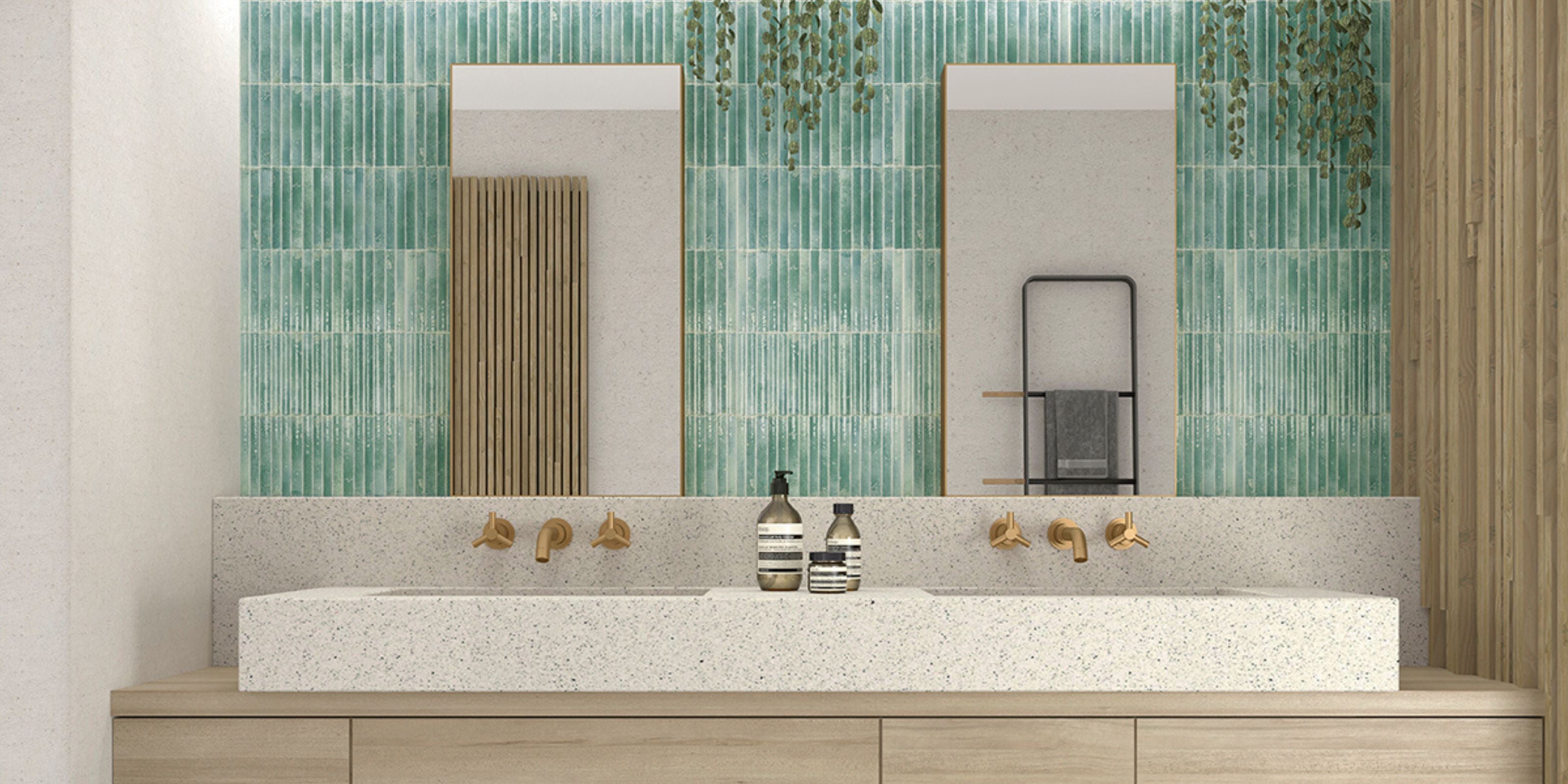
Common challenges during bathroom renovations include:
- Leaks, mold, and mildew
- Unexpected structural issues like asbestos, which can significantly delay the renovation
- Plumbing and electrical complications that often prolong renovations
Effective management of the renovation site is essential for minimizing disruptions and delays.
These issues can extend the renovation timeline; additionally, requiring fixed additional time to fix resolutions.
A detailed project plan can highlight potential issues early, allowing for timely adjustments. Regular updates and discussions with the contractor are crucial for keeping the project aligned with the timeline. Consistent communication helps swiftly address any questions or changes needed during the renovation.
Here are some common challenges in more detail.
Unexpected Structural Issues
Structural issues like leaks or mold can extend the renovation timeline. Existing plumbing or structural problems can cause delays. These issues can disrupt routines, damage systems, and create installation problems, including leaks.
Plumbing and Electrical Complications
Factors that can lengthen project durations include:
- Extensive plumbing and electrical work
- Unanticipated plumbing problems that disrupt the schedule
- Intricate designs and extensive remodels, which can extend the timeline by weeks or even months compared to simpler updates.
Weather Conditions
Bad weather can significantly impact renovation duration, especially for external work. Inclement weather can extend timelines due to installation challenges.
Severe weather can hinder outdoor work aspects of the renovation.
How to Minimize Delays

Minimizing delays requires a comprehensive plan, efficient communication, and material flexibility. A clear timeline helps track progress and identify potential hold-ups early. Making all design and material decisions ahead of time can prevent later delays.
However, sometimes it is necessary to wait for certain stages, such as drying times for adhesives or finishes, to ensure quality results and a high standard finish.
It’s advisable to set aside an additional 10-20% of your budget to cover unexpected costs that may arise during the renovation. A budget should include a cushion for unexpected expenses. Open communication with your contractor can expedite resolving immediate issues.
Here are strategies to minimize delays.
Detailed Planning
Thorough planning saves costs and time by preventing problems. Taking time to plan thoroughly leads to a more successful and enjoyable renovation.
Without proper planning, renovations can encounter unexpected issues that lead to delays and increased expenses.
Efficient Communication
Hiring a professional installer enhances the renovation experience due to their expertise in managing details efficiently. Regular communication keeps the project on track and aligned with your vision.
Effective communication avoids misunderstandings and ensures everyone is aligned regarding timelines and expectations.
Flexibility with Materials
Alternative material options help avoid setbacks from supply issues or delivery delays. Being open to alternative materials helps avoid delays from shortages or backorders.
Material flexibility is essential to avoid delays during a renovation.
Preparing for Your Bathroom Renovation

Preparation is crucial for avoiding delays and ensuring a smooth renovation process. Careful planning for the bathroom installation phase can help prevent unexpected issues and keep the project on track. Homeowners should:
- Assess current bathroom needs to determine necessary changes.
- Choose a reliable contractor to significantly reduce the likelihood of delays.
- Understand the contractor’s warranty policy to clarify what is covered for post-renovation issues.
Here are the steps to prepare for a bathroom renovation.
Setting a Realistic Budget
Bathroom remodeling costs usually range from £5,000 to £10,000, depending on the project’s scope. Creating a budget is essential for managing both expected and unexpected costs in a renovation and should be completed before proceeding any further.
Considering unexpected costs like structural issues or material delays is critical in budgeting to create an accurate estimate.
Choosing the Right Contractor
Choosing a contractor with good review helps avoid common renovation pitfalls. Requesting references and reviewing past work are essential for ensuring a contractor’s quality and reliability.
A reliable contractor significantly reduces delays and ensures a smooth renovation.
Clearing the Space
Removing all personal items and decor provides workers an unobstructed area to complete the renovation. Clearing the space streamlines the process and prevents potential damage to belongings.
Making sure the room is ready for work can expedite the renovation.
What to Do If Issues Arise
If issues arise during the renovation, prompt communication with your contractor is crucial for quick solutions. Understanding warranty and service agreement terms helps navigate post-renovation issues effectively. Unexpected structural issues like rot or hidden damage can cause significant delays.
Unanticipated plumbing and electrical complications can prolong the renovation. Adverse weather may affect scheduling and tasks dependent on external work. A plan for addressing issues helps manage these challenges more effectively.
Warranty and Service Agreements
Clarifying warranty coverage prevents misunderstandings about what’s included. Ask your contractor about their warranty or guarantee policy to know how to address potential problems.
Understanding warranty and service agreements safeguards against unforeseen post-renovation security issues.
Immediate Problem Resolution
Raise any concerns during or after installation to prevent larger issues. Act immediately if you encounter problems; consult with your contractor to install them promptly.
Addressing concerns immediately saves time and additional costs later.
Potential Benefits of Bathroom Renovation
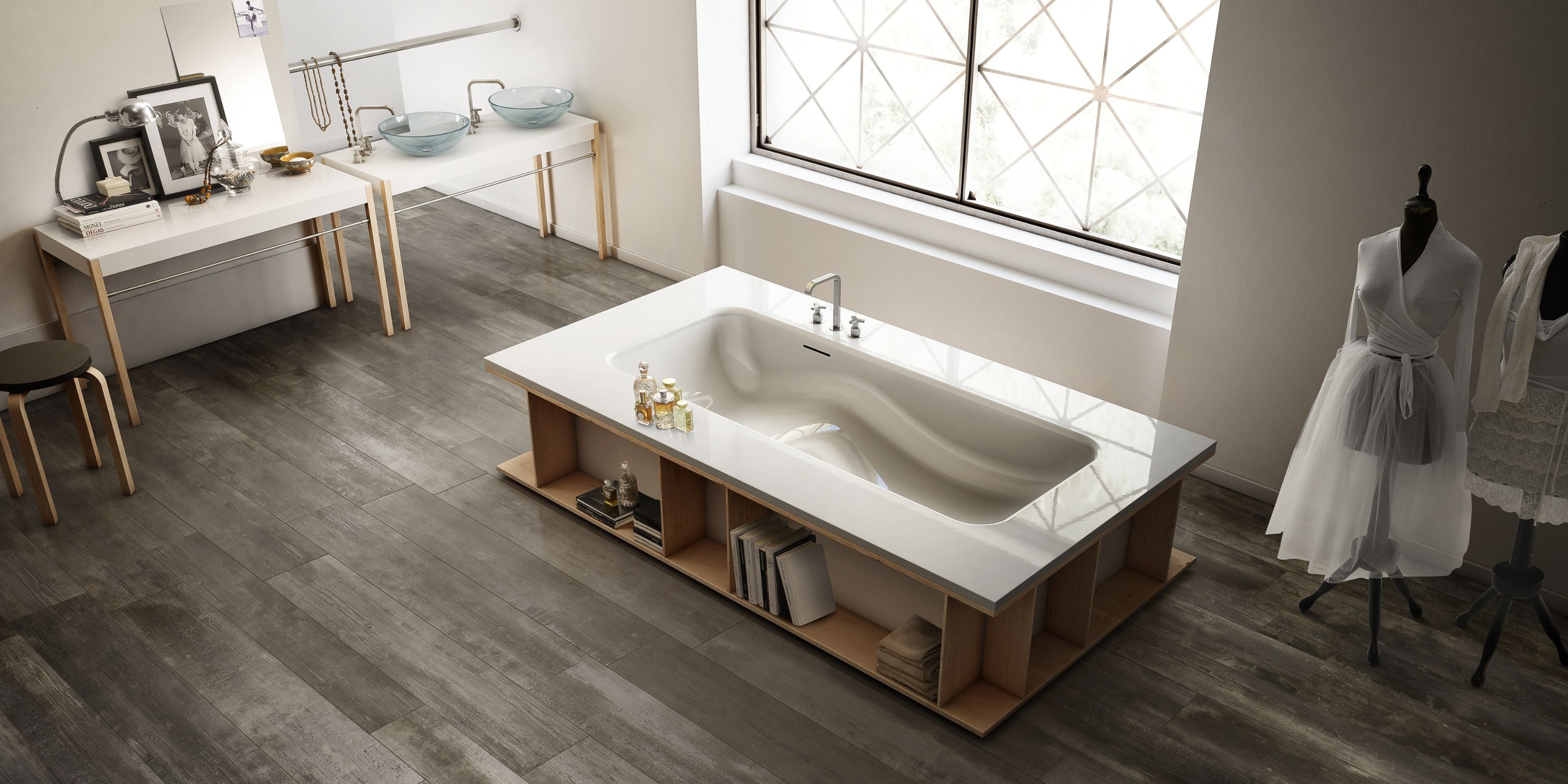
A renovated bathroom can add significant value to a home, potentially increasing its worth by £13,000. Adding a bathroom is a cost-effective renovation with a high return on investment. A well-planned renovation enhances both the bathroom’s aesthetic appeal and functionality.
Upgrading to energy-efficient fixtures enhances the home’s appeal to environmentally conscious buyers. Modern upgrades like touchless faucets and advanced ventilation systems improve hygiene and air quality.
Design trends with timeless materials and accessibility make a renovated bathroom appealing to future buyers.
Summary
In summary, a bathroom renovation involves multiple stages, each with its own timeline and potential challenges. Typical renovations can take anywhere from three weeks to over ten weeks, depending on various factors such as the size of the bathroom, the complexity of the design, and the availability of materials and contractors. Planning, communication, and flexibility are key to minimizing delays and ensuring a smooth renovation process.
Understanding the common challenges and how to prepare for them can make a significant difference in the success of your bathroom renovation. From setting a realistic budget to choosing the right contractor and clearing the space, each step plays a crucial role in achieving the desired outcome.
Ultimately, the potential benefits of a bathroom renovation, including increased home value, improved functionality, and enhanced aesthetic appeal, make the effort worthwhile. With careful planning and execution, you can transform your bathroom into a beautiful, functional space that adds value to your home and improves your quality of life.

Frequently Asked Questions
How long does a typical bathroom renovation take?
A typical bathroom renovation from start to finish usually takes between three to ten weeks, depending on how complex the project is. So, it's a good idea to be prepared for some patience during the process!
What are the main stages of a bathroom renovation?
The main stages of a bathroom renovation are demolition, rough-in work for plumbing and electrical, wall and floor prep, installing fixtures, and adding the finishing touches. Each step is crucial to achieving your dream bathroom!
What factors can influence the duration of a bathroom renovation?
The duration of a bathroom renovation can vary based on the size of the space, the current state of the bathroom, how intricate the design is, and the availability of materials and contractors. Keep these factors in mind when planning your project!
How can I minimize delays during a bathroom renovation?
To minimize delays during your bathroom renovation, focus on detailed planning, keep open lines of communication with your contractor, and have some flexibility with your material selections. This way, you'll keep things on track and avoid surprises!
What should I do if issues arise during the renovation?
If issues pop up during your renovation, talk to your contractor right away and make sure you know your warranty and service agreements. Addressing problems early can save you from bigger headaches later on.


